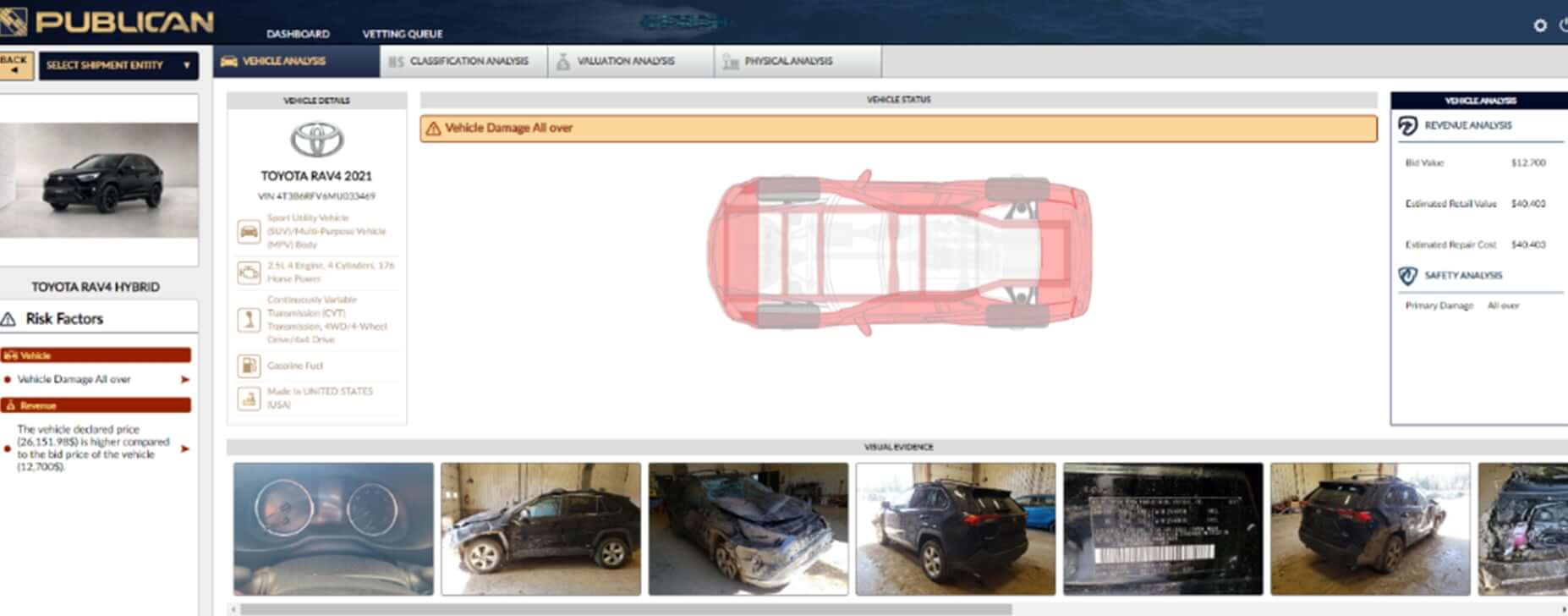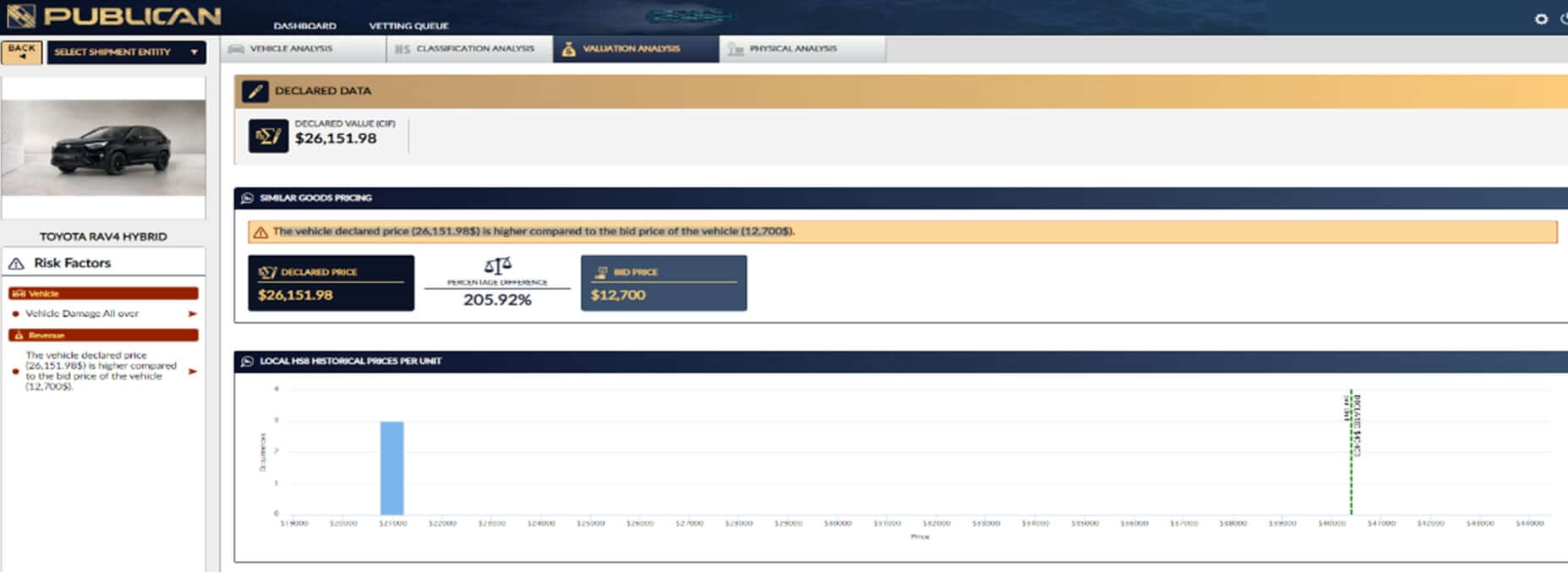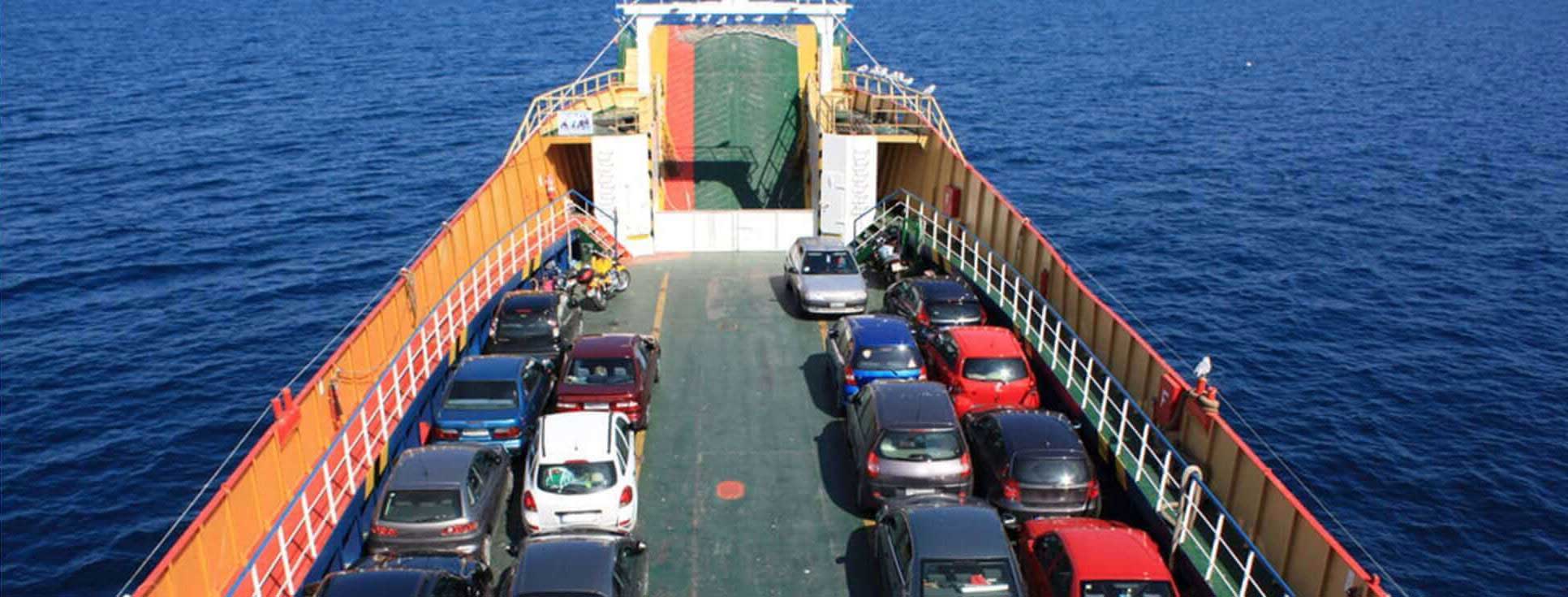Customer Success Story:
Publican: Salvaging Customs from Salvage Vehicles
The Challenge
Understanding the ‘Damage’ of Salvage Vehicles to National Safety
A rising concern is that salvage vehicles now have their own market; bought by specialized salvage companies who restore them to their original condition, passing technical safety inspections before the title is cancelled or re-registered in another region with “clean papers” and sold as a “bargain” on vehicle exchanges. There are also part recyclers who take the car apart and sell spare parts.
For borders processing large numbers of vehicle shipments every year, the growing threat posed by the salvage vehicle industry requires immediate intervention and attention in order to reveal this illicit threat. Publican’s solution meets the challenge head on, with unique capability that allows us to provide insights and unique discoveries that allow authorities to ensure every vehicle is fully legitimate before it arrives at port.
The Story
What began with the discovery of one salvaged vehicle on its way to a Central African country from the Gulf by Publican, has quickly spiraled into a clear and present trend with worrying statistics:
- 1.4% of the total imports into this Central African Country is attributed to Cars, a sizable bulk of which come from one Gulf Country (18.8% )– which equates a total import amount of $19M
- 2.5% of all vehicle shipments inspected are damaged and a worrying 100% of them are from this Gulf Country
Conclusion: This Central African Country is systematically receiving unroadworthy cars from one Gulf country posing a serious safety risk that requires immediate attention.
How Publican Uncovered this?
In 2022, Publican flagged a vehicle shipment on its way to a country in Central Africa. The country’s customs authority was able to uncover that the shipment contained a salvage vehicle by using the Publican system – a Toyota Rav4 Hybrid – which clearly should not be on the road and endangers the safety and wellbeing of the public.
Analyzing the Vehicle’s Condition

Having concealed a considerable level of damage, Publican unearthed crucial evidence through external sources confirming the vehicle in question was not, as it claimed to be, in a guaranteed condition, but after closer inspection, had damage levels more consistent with a salvage vehicle.
Analyzing the Vehicle’s Valuation

Through closer analysis, Publican discovered that the exporter of the shipment submitted an unusually high valuation of $26,152 for the vehicle, more than double the official bid price the vehicle usually garners on the market which would serve to distract from the true state of the vehicle.
Findings & Conclusions: Irregularities connected to both the vehicle’s condition and its submitted valuation led Publican’s system to flag the shipment as potentially risky, authorities investigated further and confirmed the vehicle to be in violation.
Capability:
Publican’s discovery proved to be just one case from potentially thousands. The ability to cross-check and analyze a wide net of data for every shipment surfaced many others with a similar level of damage and pointed the Customs officials of this country to this worrying trend.
Impact
Publican provides customs authorities around the world with the capacity, tools, and supply chain visibility needed to discover unroadworthy vehicles in incoming shipments and ensure all vehicles coming into the country are fully legitimate.
It does this through its unique Digital Shipment Vetting Solution, which goes above-and-beyond as the first-and-only one capable of exposing a wide range of fraud and risk patterns related to vehicle imports, otherwise invisible to standard customs checks. This includes an AI-driven platform that uses uniquely sourced data loads, innovative contextual analysis, and deep intelligence knowhow to quickly alert authorities when a vehicle is not what it claims to be.
For more information, visit https://publican.ultra.global/
Get in touch
-
21 Soho Square London W1D 3QP, UK



